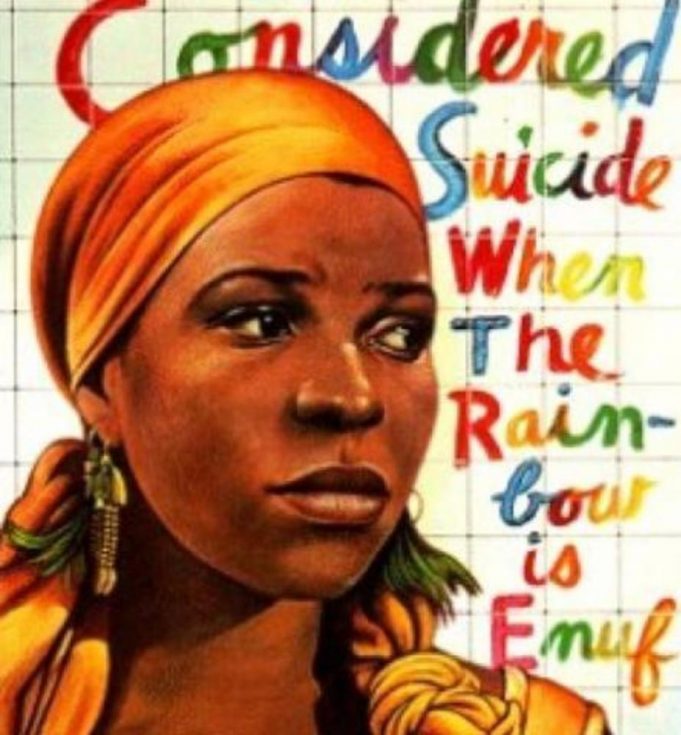I didn’t think I could feel any lower. The week started with the news that George Soros, Bill and Hillary Clinton, and Barack and Michelle Obama were the targets of some deranged person sending pipe bombs to Democratic politicians and supporters. Next, I learned of two Black people over 65 years old who were gunned down at a supermarket in Kentucky by a man who initially attempted to kill people in a Black church. By Saturday, I learned that 11 people between the ages of 54 and 90-something were murdered by a madman in a Pittsburgh synagogue. It was all too much and it forced me to shut off the television, the radio, and stay off social media. I just needed a break from bad news. However, when I decided to re-engage, I was greeted by the news that poet Ntozake Shange had died. At that point, every bit of resilience I thought I had evaporated.

Shange is of my generation. I still have my original copy of For colored girls who have considered suicide when the rainbow is enuf that I purchased in 1977. I both loved it and envied her writing. She was my contemporary and she had created something that blew every Black woman’s mind. As we read each poem we saw ourselves in every page. I was reading Shange at the same time I was reading Amiri Baraka, Don L. Lee (Haki Madhabuti) and listening to The Last Poets and Nikki Giovanni. I loved each and every poem but was especially captivated by, “Somebody almost walked off wid alla my stuff.” It detailed an experience every Black woman I knew had gone through and she said it all in a Black woman’s voice.
Many years later as an academic, I published a book chapter titled, “For colored girls who have considered suicide when the academy is not enuf.” Ntzoka Shange was the complete inspiration for this chapter that details the way that Black women are regularly wounded in higher education. The chapter also talks about my ability to triumph over the toxicity of the academy. It was a tribute to Shange and every Black woman who had pointed the way for me…my mother, my grandmother, my aunts, the neighborhood mothers, the church mothers, Fannie Lou Hamer, Rosa Parks, Anna Julia Cooper, Septima Clark, and so many more.
Shange declared, “I found God in myself and I loved Her fiercely.” This theological declaration was the beginning of my developing a deeper sense of self-esteem and purpose. It moved my gaze away from the “man” in the pulpit and toward that which God had placed inside of me. Shange grew up in a middle class family—her father an Air Force surgeon and her mother a psychiatric social worker. She attended and graduated from Barnard College with a degree in American Studies. She later earned a Master’s Degree from the University of Southern California. She had many of what psychologists call, “protective factors” but they did not keep her from sinking into depression and contemplating suicide.
Her last 14 years were difficult. She suffered a series of strokes in 2004 and was living in an assisted living facility in Maryland. She was showing signs of recovery and had begun producing new work and doing readings. She has transitioned to the next world and knowing that makes me incredibly sad. However, I find joy in the fact that daily there is yet another Black woman who discovers there was someone who dared to speak, “for colored girls!”










